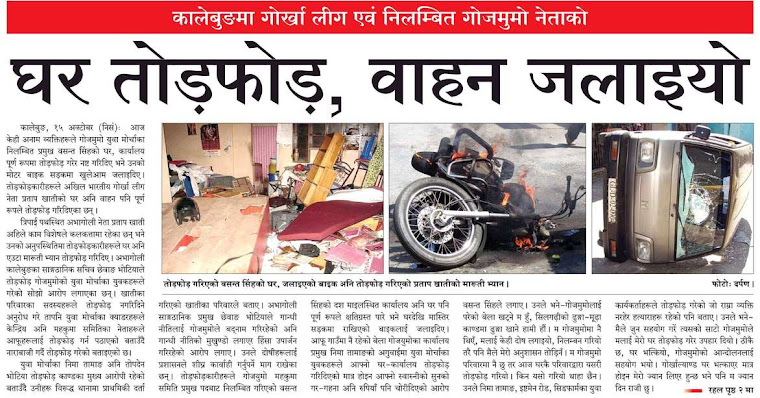BBC News: Separatist rebels from India’s north-eastern state of Assam have developed links with dissidents from Bhutan, Indian officials have told the BBC.The Assam police are questioning a Bhutanese dissident leader for his alleged involvement in October’s blasts in Assam that killed 84 people.Tenzing Zangpo belongs to the Druk National Congress that is opposed to Bhutan’s ruling regime.Police say he has spoken of “close links” with rebels in Assam. Investigators told the BBC that Mr Zangpo said his group also had links with the fledgling Maoist movement in Bhutan.“India and Bhutan together want to destroy us, so we have to come closer for survival,” senior Assam police officials quoted Mr Zangpo as telling them.For more than a decade, Bhutanese dissident groups, specially those representing the Bhutanese refugees of Nepali origin, have tried to secure Indian support for their plans to march back to the kingdom through Indian territory.But as Delhi used tough police action to prevent the marches, the Bhutanese dissidents turned to India’s enemies, Mr Zangpo is said to have told the Assam police.The separatist United Liberation Front of Assam (Ulfa) and the National Democratic Front of Bodoland (NDFB)- the former fighting for Assam’s independence and the latter for an independent homeland for Bodo tribes people - had more than 30 bases in southern Bhutan.The bases were demolished by Bhutan’s royal army during an operation in December 2004.“Until then, the Assam separatists kept a safe distance from the Bhutanese dissident groups, who campaigned in India against the royal government’s human rights abuses. But the equations changed after the Bhutanese military action,” Mr Zangpo said, according to the Assam police.Police say he told them that the NDFB and the Ulfa train the Bhutanese Maoists and the Druk National Congress activists in bomb-making.He is also reported to have said that the Druk National Congress had set up some bases together with the Assam separatists in southern Bhutan again.Southern Bhutan has been rocked by a spate of low-intensity explosions in recent months. Several people have died in these explosions.The Bhutanese Maoist party is made up mostly of “Bhupalis” (Nepali-speaking Bhutanese) who were chased away from the kingdom in the early 1990s.They received initial training from the Nepali Maoists before the latter decided to return to parliamentary politics by giving up their armed movement.“But now they depend on the Assam separatists for training in weapons and especially in bomb making,” Assam police say Mr Zangpo said.According to police accounts of the questioning of Mr Zangpo, he also said Assam separatist groups had been bringing in explosives from Bangladesh through India’s thin “north Bengal corridor” and stocking them up in the clandestine bases in southern Bhutan.“The bombs that devastated Assam on 30 October were assembled in these small south Bhutan bases and brought into Assam across an open border,” Mr Zangpo told the police after his arrest in Assam, they say.They were stray intelligence reports about the Assam separatists reviving their bases in recent months.But neither India’s federal government nor the state government of Assam paid much heed to them.“A complacency had developed. Nobody believed south Bhutan could be used again by these rebels after such a comprehensive military operation in 2004. But one must realise that was a long time back,” said a senior Assam police official.
Saturday, November 15, 2008
Subscribe to:
Post Comments (Atom)























No comments:
Post a Comment